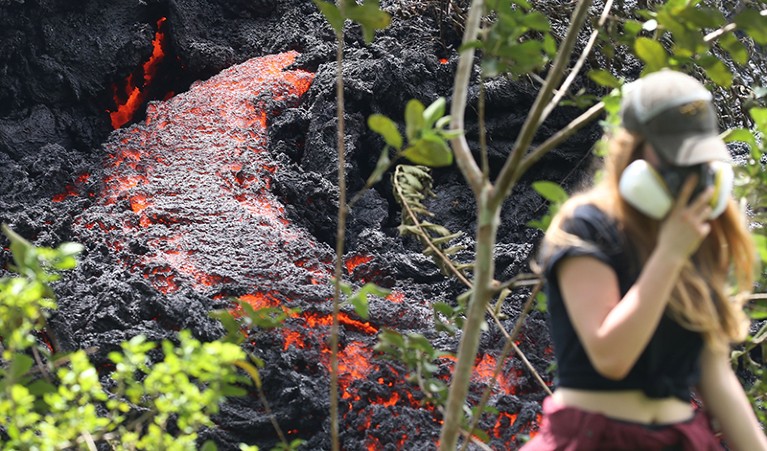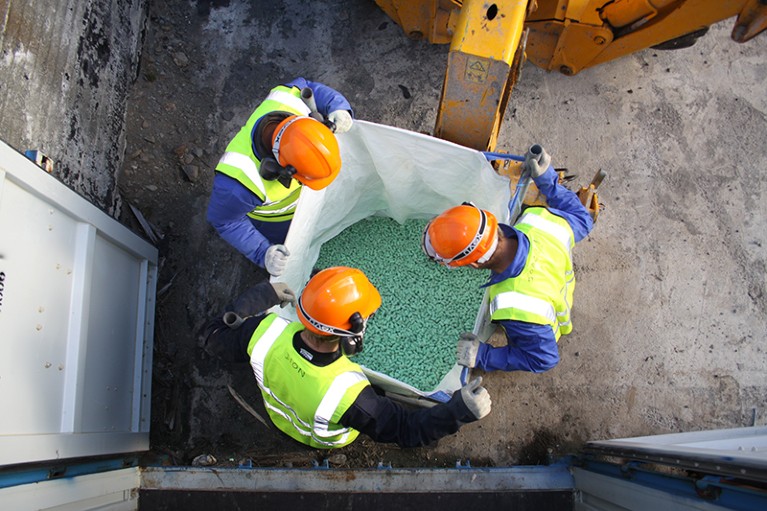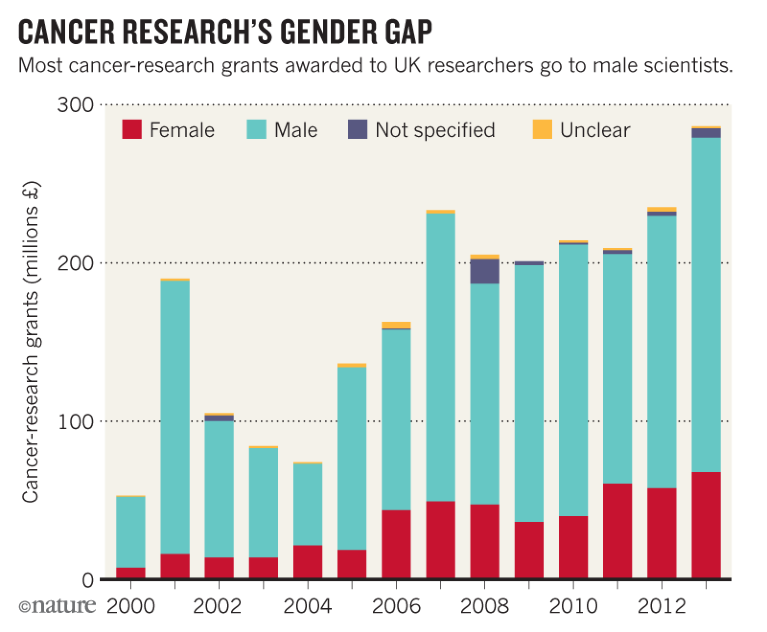EVENTS
Disaster declared for Hawaii volcano Lava-spewing fissures created by the eruption of the Kīlauea volcano in Hawaii continue to threaten residents on the island. Since the eruption began on 3 May, volcanic activity has destroyed 37 structures, and 2,000 people have been evacuated from their homes. Scientists have warned that the volcano could soon begin ejecting rock and ash if the crater’s lava lake drops to or below the level of the water table. On 11 May, US President Donald Trump approved a disaster declaration for Hawaii, freeing up federal funds to deal with the eruption.

Credit: Mario Tama/Getty
Ebola outbreak The Democratic Republic of Congo (DRC) declared an outbreak of the Ebola virus on 8 May, after two people in the northwestern Equateur province tested positive for the virus. There have been 39 suspected cases of Ebola in the province since 4 April, including 19 deaths, the World Health Organization said on 14 May. This is the DRC’s ninth Ebola epidemic since 1976. The last outbreak occurred in 2017. In 2014, the virus killed more than 11,000 people across West Africa.
Nuclear withdrawal US President Donald Trump announced on 8 May that he will pull the United States out of the Iran nuclear deal. Researchers say that the move will hamper efforts to establish scientific collaborations between the two countries. Under the 2015 Joint Comprehensive Plan of Action, Iran agreed to scale back its nuclear programme and allow inspections of its facilities, in exchange for the removal of economic sanctions imposed by the United States and its allies. Iranian scientists expanded working relationships with their European counterparts in areas such as nuclear safety and security. But efforts to set up collaborations between US and Iranian researchers — including a project to steer Iran towards a safe and secure nuclear-energy programme — will probably come to a halt.
Nuclear dismantling North Korea will close its nuclear test site at Mount Mantap, the country announced in the state media on 12 May. International journalists will be invited to witness the dismantling ceremony, to be held in late May. Satellite-imagery analysis published on 14 May by the independent website 38 North indicates that some buildings and equipment have already been removed from the mountain location near Punggye-ri. North Korean leader Kim Jong-un has previously said the site is no longer needed now that the nation has completed development of its nuclear weapons. He and US President Donald Trump are set to meet in Singapore on 12 June to discuss denuclearization of the Korean Peninsula.
FUNDING
R&D refund capped The latest Australian budget, presented on 8 May, has proposed a cap on the tax refund that companies can claim if they invest in research and development (R&D). The government said that the R&D Tax Incentive had cost two-thirds more than was forecast when it was implemented in 2011. The budget proposes that the scheme be capped at Aus$4 million (US$3 million) a year for companies with annual turnovers of less than Aus$20 million. Spending on clinical trials will be exempt from the cap, much to the relief of the biotechnology industry.
South African cash South Africa’s latest science budget, approved on 9 May, cut support for its main research-funding body. The National Research Foundation (NRF) was allocated 904.8 million rands (US$73 million) for 2018–19, down 2% from 926 million rands in 2017–18. The NRF’s budget has declined by 10% since 2012; last year, the agency slashed funds for a prestigious grant programme, causing some of the country’s leading academics to lose up to 90% of their cash. The budget of the department of science and technology, which oversees the NRF, rose from 7.5 billion to 7.79 billion rands, a below-inflation increase. But the department says it will maintain support for the Square Kilometre Array, a project to build a giant radio telescope in South Africa and Australia. It has earmarked 709 million rands for the project in the next financial year.
CONSERVATION
Rodent-free island The sub-Antarctic island of South Georgia has declared itself free of invasive rodents, after a decade-long eradication effort. The project, which cost £10 million (US$14 million), is the biggest such programme ever undertaken and involved dropping more than 300 tonnes of poisoned bait (pictured) over 1,087 square kilometres of the island — by hand and by helicopter. The South Georgia Heritage Trust announced on 8 May that a two-year survey of the island with sniffer dogs had found no remaining trace of rodents. Mice and rats first arrived on South Georgia, a British Overseas Territory, on vessels in the late 1700s, and have had a devastating effect on endemic bird species. Some of these birds are now showing signs of recovery, the trust said.

Credit: Tony Martin/SGHT
SPACE
Chinese satellite China launched its latest Earth-monitoring satellite on 9 May at the Taiyuan Satellite Launch Centre in Shanxi province. The craft, called Gaofen-5, will boost China’s capabilities in atmospheric observation. Four of its six instruments will monitor air pollution and greenhouse gases. The remaining two will survey the land and the sea and include, according to media reports, China’s first hyperspectral payload, which is designed to capture high-resolution spectral imagery. The satellite is the tenth to go into orbit in the Gaofen series, whose varying instruments are intended to provide high-resolution monitoring of the entire Earth by 2020.
Grizzly proposal US officials are considering removing Endangered Species Act protections for grizzly bears in the Northern Continental Divide Ecosystem, the US Fish and Wildlife Service announced on 9 May. The ecosystem covers more than 30,000 square kilometres of the northern Rocky Mountains, and includes Glacier National Park. There were an estimated 942 grizzly bears (Ursus arctos horribilis) in this area in 2011. Removing federal protections would turn management of the animals over to the state of Montana, where the bears live. The announcement comes almost a year after the agency removed grizzlies in the greater Yellowstone ecosystem from the list of endangered species.
PEOPLE
UK society fellows Britain’s Royal Society named 50 eminent scientists as its newest fellows on 9 May. Among them are inventor Elon Musk, theoretical physicist and broadcaster Jim Al-Khalili, plant scientist Cathie Martin and artificial-intelligence researcher Demis Hassabis. David Willetts, who was the UK government’s universities and science minister from 2010 to 2014, was named an honorary fellow for his consistent championing of science. Of the new fellows, 12 are women. Scientists, engineers and technologists are elected to the society on the basis of their exceptional contributions to science.
Bacteria pioneer Microbiologist Stanley Falkow has died at the age of 84, Stanford University in California said on 10 May. Falkow, an emeritus professor at Stanford, was known for his research on how bacteria cause human disease and how antibiotic resistance spreads. One of his biggest discoveries — made in the 1970s — was that bacteria can transfer circular pieces of DNA known as plasmids to each other. Falkow also advocated for US federal regulators to ban the use of antibiotics in animal feed. A winner of the 2015 National Medal of Science, he trained more than 100 students and postdocs during his career. Falkow died in his California home on 5 May.
POLICY
Clinic crackdown The US Food and Drug Administration (FDA) announced on 9 May that it is seeking permanent injunctions to halt the sale of unapproved stem-cell treatments by two clinics. The agency says that one of the companies — US Stem Cell Clinic of Sunrise, Florida — has continued to market unapproved products to patients, despite receiving a warning letter from the FDA last August. The FDA says that the second company used live-smallpox vaccines in treatments given to people with cancer. Federal marshals seized vials of the vaccine in 2017 after the agency inspected clinics run by the California Stem Cell Treatment Center, an affiliate of the Cell Surgical Network Corporation, based in Rancho Mirage and Beverly Hills, California.
BUSINESS
Listing called off Academic publisher Springer Nature has postponed its plans to float on the Frankfurt stock exchange in Germany. The company said on 8 May that market conditions had delayed plans to raise €1.2 billion (US$1.4 billion) by selling new shares in an initial public offering. The firm had intended to list on the stock exchange on 9 May. Springer Nature, which publishes this journal and around 3,000 other titles, was formed in 2015 in the merger between London-based Macmillan Science and Education and Berlin-based Springer Science+Business Media. A large portion of the proceeds from the planned listing were to be used to cut the company’s debt. (Nature’s news team is editorially independent of its publisher.)
TREND WATCH
Nearly 70% of UK cancer-research grants awarded over a 13-year period went to male researchers, an analysis finds. A team analysed the details of about 4,200 grants given out by public and philanthropic funders to UK institutions from 2000 to 2013, together totalling £2.33 billion (US$3.2 billion). Female investigators received just 31% of the grants, and the median award value was 1.3 times greater for men. The discrepancy persisted across types and stages of research, and across funders.

Source: C. D. Zhou et al. BMJ Open 8, e018625 (2018).






